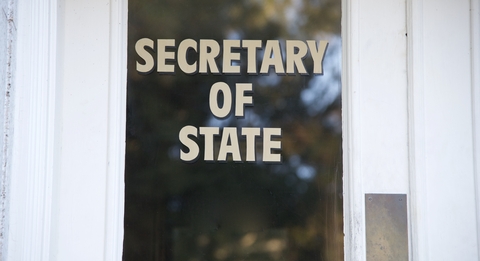What’s missing from your research?
As an investigator or researcher, what you don’t find is often as important as what you do find – if not more. To be thorough, you need to be mindful of what you can and can’t deliver to your client. A recent case reminded me of this important lesson, and I’d like to share what I (re)learned about what’s missing:
What’s missing from news databases?
Finding a conflict of interest is like looking for a needle in a haystack. You’re trying to prove a negative, which is a difficult thing to do, and you need to be thorough. For this case, I was tasked with finding news articles that could uncover a business relationship. To make sure my databases included the local news that would really help in this situation, I checked the lists of sources that are generally included with these search tools. It was quite an eye-opener. Some databases didn’t cover the sources I needed. Others did, but only went back a few years. Some stopped covering them several years ago, and all only included “selected articles.” Armed with this information, I had a long talk with the client and managed their expectations. After determining that they understood the limitations of these types of searches, I did the best I could. This meant relying on not just one source and searching multiple databases to get the best coverage possible.
What’s missing from public records?
Public records, including deeds, assessments, business filings, court documents, and more, can be a rich source of answers about companies and individuals. But not everything makes it into the the public record. This conflict-of-interest case is a great example. My client, another private investigator, had searched high and low in court documents, property records, and corporation filings, but there was nothing to indicate that our subjects had any sort of business partnership. In the news databases, though, I found several articles that mentioned an undisclosed relationship. It was exactly what my client and their client needed. Dig deep into news stories and social media to find what’s missing, and don’t rely on just public records.
What’s missing from online sources, in general?
With so much available through the web these days, it’s easy to become complacent and rely on what you find online. Yes, it’s handy to enter your search terms and locate the articles or documents that will answer all your questions. But will they? Certain court records can only be found at the courthouse. Not all jurisdictions post their public records. And, as mentioned earlier, news sources don’t include all their articles in online databases. Maybe what you’re looking for is so new that no one has taken the time to gather – no less post to a website – this obscure information. Or, perhaps you’re seeking the human side to the story. That’s when it’s time to step away from your computer and pick up the phone or conduct some boots-on-the-ground research. In this conflict-of-interest case, my client made sure to let their client know the limitations of online sources, in general, and they agreed that this would be a first pass only.
While online sources save time, make sure you know what’s missing. It can make a big difference in your results, and you never want it over-promise or under-deliver.




Thank you for this timely article. I think it is important to add that some of this data found online differs from state to state. More and more it is critical to understand what the scan request is for, in order to work smarter not harder.
Another consideration is to periodically (when applicable) conduct a fresh scan within a certain time frame, to see if anything new pops up. As far as news stories go, using a software platform that has historical capabilities is key. We recently found an article about an auto accident, that had since been taken down. Our client was able to obtain a subpoena from the news media site to use it as evidence in their case.
It is so important, as you say, to educate clients so they can in turn educate their clients on the deep web. Even in 2020, there are still so many misconceptions out there!
Thanks for these reminders, especially about understanding the reason for the request and conducting updates. Much appreciated.